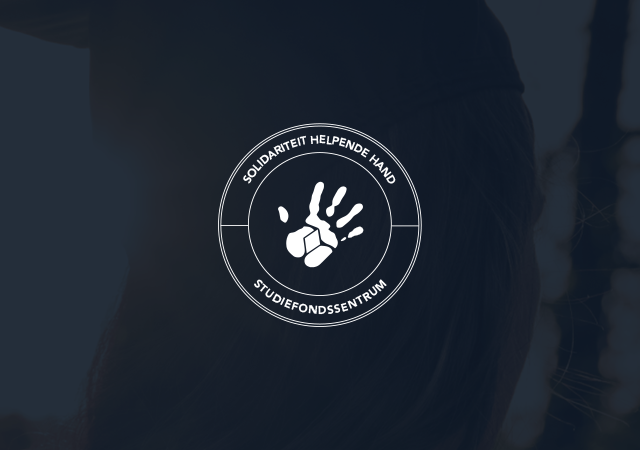What is the National Health Insurance Act?
National Health Insurance (NHI), under state control, is proposed as the single purchaser of all healthcare in South Africa. One of the most notable problems with this proposition is that as soon as a specific service is covered by the NHI, it would become illegal to receive it through any means other than the NHI. The state would therefore not just be the single purchaser, but would effectively control which health services would be available in South Africa, as well as how and by whom those services may be provided.
In June last year the National Assembly agreed to the National Health Insurance (NHI) Bill making provision for the introduction of the NHI, and in December the Bill was also approved by the National Council of Provinces. Weeks before the national election in May 2024, President Cyril Ramaphosa signed the Bill into law. This Act sets out to offer “free” healthcare to all citizens, including expensive medical procedures currently done in private hospitals. Although it seems like a noble notion, it is however important to note that the free healthcare the government already provides in state hospitals and clinics is already unsustainable and these facilities are in unthinkably awful conditions. The NHI is an unaffordable attempt from the state which would drastically cut the income of its citizens, as it would be mainly funded by a very small number of taxpayers.
The Minister of Finance did not budget for a reasonable amount for the implementation of the NHI, which implies that the Treasury does not foresee the actual implementation of the NHI in the near future. This was also the case with the previous submissions of the Bill, and now, with the Bill having been passed, the officials concerned still did not provide for this constitutional requirement.
Even so, the funding structure proposed in the NHI Bill makes provision for a new payroll tax, as well as for a surcharge on income tax. This is in addition to general tax revenue and a planned re-allocation of provincial budgets and conditional allocations, as well as from tax credits for medical schemes.
If the government projections made at that time are to be believed, the NHI will result in the budget deficit being further increased by about R32 billion. A more realistic calculation, as shown in a research report by the Solidarity Research Institute (SRI), shows a deficit of R295,93 billion as an absolute minimum. Treasury cannot afford a deficit of R32 billion, let alone a deficit of R295,93 billion.
Theoretically, R295,93 billion could be generated by abolishing the medical tax credit (about R30 billion) and levying the following taxes:
- A 40% surcharge on income tax;
- Increasing VAT from 15% to 22%;
- A payroll tax of 13,4%;
- Increasing corporate income tax from 27% to 45%; and
- A combination of these.
In real terms, none of these is possible, because the South African taxpayer is overtaxed.
The theoretical examples given here above serve as illustration purposes only and to demonstrate the absurdity of the NHI.
The National Health Act and a victory in court
On 24 June 2024 Solidarity managed to have one of the major cornerstones of the proposed National Health Insurance (NHI) pulled down by means of its legal action when the North Gauteng High Court declared sections 36 to 40 of the National Health Act unconstitutional. The court also granted a cost award against the respondents.
According to Solidarity, the state’s goal with these sections in the National Health Act clearly was to pave the way for the NHI.
“The government wants to change to a system in which health care is nationalised and health care practitioners become servants of the state so that the provision of all health care can be centrally controlled by the state. This victory thwarts those disastrous plans,” Solidarity Chief Executive Dr Dirk Hermann said.
Sections 36 to 40 of the National Health Act provide that health care practitioners obtain a certificate of need (CoN) from the Department of Health before they can establish a practice in a specific area.
By declaring these sections unconstitutional, this court ruling will have an impact on the implementation of the NHI Act and will complicate the processes to implement it.
After the court ruling by the North Gauteng High Court, the Minister of Health, Dr Aaron Motsoaledi, denied that the ruling on the National Health Act made the National Health Insurance (NHI) Act vulnerable, denying any connection with the NHI Act while accusing pressure groups of spreading “toxic propaganda”.
However, his own department’s spokesperson, Foster Mohale, was quoted on multiple occasions in the past, reaching this exact conclusion that the two are connected when the sections were first declared invalid in 2022.
“The ruling has serious implications for the implementation of the National Health Insurance (NHI), and the Department of Health will request that the ruling be overturned and will contest the case in the Constitutional Court,” Mohale said at the time.
Hermann says that the government does not have a track record of “doing the right thing,” and Solidarity will therefore be ready to continue the fight in court.
What are the implications of the NHI for South Africa?
Dr Eugene Brink, strategic advisor for community affairs at AfriForum, also explored the implications of National Health Insurance in an article published on Solidarity’s platform. He writes that the NHI could be very dangerous if ever fully implemented.
In his article he quotes Bloom Financial Services, which stated that the NHI would destroy comprehensive medical schemes. “Once implemented, medical schemes won’t be able to offer any health services already offered by the NHI. Medical aid will only offer you extra services not covered by the NHI.”
Brink also pointed out that all healthcare funds would be centralised (actually nationalised) in a single state-controlled fund. Given what the government as curator of tax money has caused as a result of blatant corruption and abuse, this is a chilling thought.
The medical aid fund Discovery offers further criticism in this regard, also quoted in Brink’s article: “Our strong view is that limiting the role of medical schemes would be counterproductive to the NHI because there are simply insufficient resources to meet the needs of all South Africans. Limiting people from purchasing the medical scheme coverage they seek will seriously curtail the healthcare they expect and demand. It poses the risks of eroding sentiment and of denuding the country of critically needed skills, and is impacting negatively on local and international investor sentiment and business confidence.”
Brink also refers to Prof. Nicola Theron and Dr Paula Armstrong of FTI Consulting who recently wrote that to insist that the only path to universal healthcare (UHC) is through a single pool of funds managed by the government and the erosion of the role of medical schemes as purchasers of medical services would probably contribute to the demise of a strong and well-functioning private healthcare section. It narrows consumer choice, erodes competition and may even lead to the same outcomes as recent examples of what has become of state-owned enterprises and funds. Read the full article here.

No end in sight for the fight against the NHI yet
“Solidarity is vehemently opposed to the NHI and is strongly in favour of a market approach, offering a choice to private service providers and to the public, while at the same time being in favour of an improved public healthcare system. NHI will ruin South Africa and Solidarity is preparing for a major court battle to ensure that the healthcare sector is free, safe and prosperous,” Brink concluded his article.





























